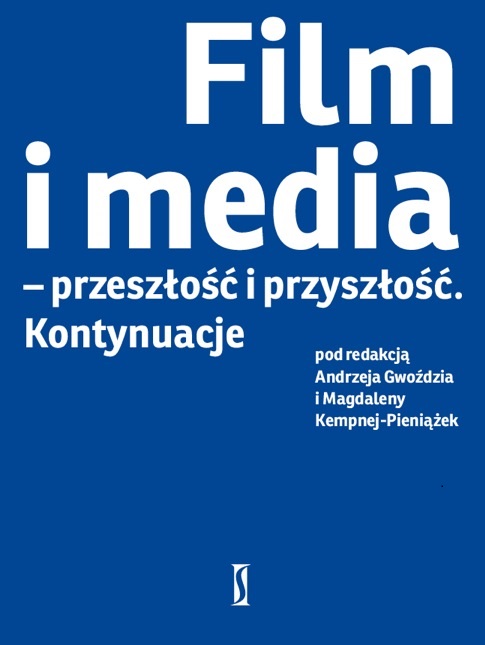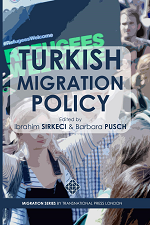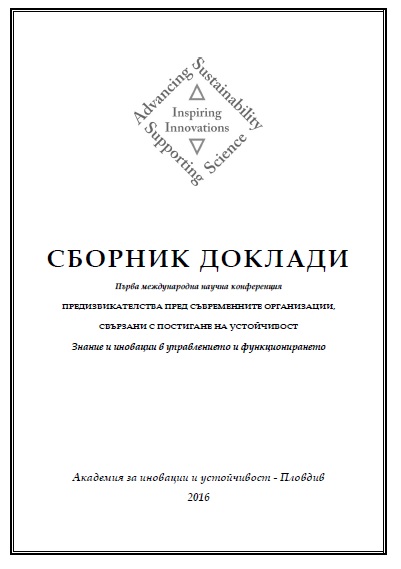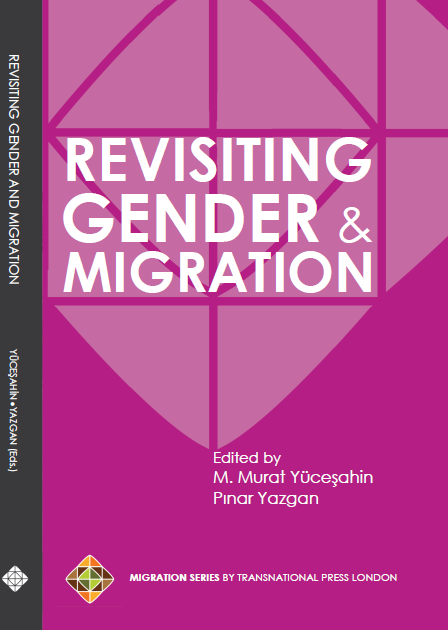
We kindly inform you that, as long as the subject affiliation of our 300.000+ articles is in progress, you might get unsufficient or no results on your third level or second level search. In this case, please broaden your search criteria.



The text discusses the basic tenets of media linguistics: a transdisciplinary sub-discipline, combining culturally oriented linguistics with media studies, whose aim is to analyse all media-motivated linguistic phenomena. The main theoretical foundations of media linguistics (apart from media studies and contemporary culture) are cognitive linguistics (such approach involves treating media as essential epistemological formations of reality) and critical discourse analysis.
More...
The Polish Generation X characters came to existence in the period after 1989, when new media started to play a significant role in social reality and were also one of the most important indicators of Polish political and economic transformation. In the author's opinion, new media, such as video capture camera, exerted the most significant influence on the changing perception of reality among the young generation. In accordance with Marshall McLuhan’s popular statement: “the medium is the message”, we could say that video capture camera was not only a new medium but also a new way of reality perception. The consequence was a specific identity created by film characters. The main purpose of the article is to show the phenomenon of video capture camera in films of young Polish directors, such as Łukasz Barczyk, Mariusz Front, Iwona Siekierzyńska and Piotr Szczepański. The author reflects upon the way in which the characters – representatives of Polish generation X – use this medium and how it influences their identity.
More...
In her article Dagmara Rode describes feminist (new) media in Poland. She analyses several examples (such as websites, forums, newsletters, fan pages, blogs, virtual museums and on-line library projects) of different activities of both non-governmental organisations and informal groups in order to show how Polish feminist activists use (new) media to provide alternative sources of information, create and disseminate knowledge, offer space for debate and exchange of ideas, to mobilise people through media and write history of the Polish women's movement.
More...
Despite its relatively short history, crowdfunding has established itself as an alternative way of financing production of music, movies and computer games. The paper shows how crowdfunding can be analysed from the perspective of media studies. It is argued that crowdfunding can lead to building new types of relationships between creators and audiences. The paper suggests that concepts such as produsage, participatory culture and free labour may be particularly useful in the analyses of crowdfunding.
More...
Strategy called ‘crowdsourcing’ is based on the assumption, that people, who are usually reduced to passive recipients of culture, are able and willing to offer much more than that. The name literally means ‘receiving sources from the crowd’ and exists in many forms the most popular of which is crowdfunding: public request to a group of anonymous internauts for financial support for a given project. Nevertheless, the subject relates to many more aspects of creative work in such fields as film, music, commercials, photography or brand development. It takes the form of cloud labour, open innovation, distributed knowledge or crowd creativity in a wide sense, and rewards self-reliance, creativity and passion. Authors of such projects see sufficient effects of their work or receive financial support in faster and quicker way, and without needless bureaucracy or expenses, while ‘the crowd’ receives one more opportunity to express itself through a more or less charitable activity, sharing its passion or admiration for an artist via mass media channel. In the article the author reflects upon different forms in which crowdsourcing presents itself in various fields of audio-visual culture: music videos, documentaries or fictional films. He also studies its relations to concepts of collective intelligence, knowledge community or sharing culture.
More...


This chapter scrutinizes the historical forms of managing migration and diversity in Turkey, as well as the development of the Europeanization process of Turkey’s migration policy. We argue that managing diversity in Turkey can be historicized in three epochs: Ottoman multiculturalism, Turkish republicanism, and the contemporary model of Europeanization. Turkey has so far witnessed both multiculturalist and republican forms of integration being implemented respectively by the Ottoman state and the modern Turkish state.
More...
The paper examines challenges to labor market in the Republic of Bulgaria. The analyses of its development from the beginning of the transition to the market economy, structural changes in employment and unemployment, individual labor supply and policy of building a functioning labor market reveal specific factors of the unemployment and the growth in the country. Current problems are dicussed and general conclusions about future development are drawn on the basis of the examined aspects of labor market development influenced by the periods of economic development and the place and the roles of labor market policies in the general economic policy.
More...
The presentation discusses the current social and economic situation in Bulgaria imposing the need of application of new approaches and instruments in establishment of knowledge and innovation based economy, raising competitiveness of enterprises and achievement of a balanced regional development. Through the example of the concept of foundation of the Trakia National Agrarian Technology Park good practices having great potentials of contribution to sustainable development are considered.
More...
In times of dynamic changes and comprehensive transformation of the social environment and subjects of management several problems inevitably arise in which undoubtedly a key one shines behind - that of the crisis in management. The essence of the latter is related to the partial or complete absence of organizational experience operating in fundamentally new conditions, lack of understanding of the dynamic processes influencing decision making, irrational behavior for template transfer and application of foreign experience, aptitude to compromise, use of "morally" outdated management approaches built in traditional forms of organization, management style and ways of behavior and thinking that remain unchanged regardless of the highly dynamical business environment.Therefore, the requirements to the organization's staff are constantly increasing, which requires a reassessment of the considered as constant management models and adoption of conceptually new organizational solutions in this area. The paper discusses the role of the human capital in knowledge-based economy providing conclusions and recommendation on the importance of its development. The creation of human capital having “new skills for new jobs"”is possible if higher education, research centers and companies pool their efforts to build the managers of the future and ensure the competitiveness of the knowledge triangle “education - science – innovation”.
More...
Turkey, a traditionally migrant sending county, has become a destination and transit country for migration and refugee movements since early 1990s. Today, in addition to hundreds of thousands of undocumented migrants, more than 2.7 million Syrians living in Turkey under “temporary protection” status. Previous research suggests that political changes in neighbouring areas, being located at conjunction of the East and West, a closer and cheaper neighbouring country with a relaxed visa regime, and the European Union's (EU) restrictive migration policies made Turkey more attractive for many migrants and tourists (İçduygu and Kirişçi, 2009). Initially, a significant number of transit migrants and asylum seekers, mainly from Afghanistan, Iraq and Iran but also from several African and Asian countries came to Turkey to find their way to enter the wealthy Europe since 1990s.
More...
Turkey is a special country. Sandwiched between Europe and Asia,Turkey is a secular Muslim country that has undergone many transitions,including from a major source of international migrants to a major destination for them. About five percent of the 80 million people born in Turkey are living outside the country, including over half in Germany. Meanwhile, up to five percent of people in Turkey were born elsewhere, including over half born in Syria.
More...
The concept of citizenship, which is a multi-layered construct by itself,consists of diverse structures when it comes to the citizenship of immigrant women. This research investigates whether, how and to what extent social and cultural changes experienced by the Bulgarian Turkish immigrant women,along with changes in their educational lives and labor force participation made an impact on the practice of their citizenship rights. The migration process itself is gendered not simply due to the fact that men and women are differently affected; it is also likely to affect how gender identity interacts with the new identity bestowed upon the migrant women. Transnational migration generates new social inequalities and social exclusion. The tragedy of ethnic oppression and ethnic assimilation and, in extreme cases, the danger of ethnic cleansing are made unbearable through the assaults on women and children. Hence, the victimization of ethnic minorities is almost always feminized.
More...
Since Turkey became a candidate country in December 1999, the EU has been typically exerting influence on Turkish domestic policy change through accession conditionality. Since the mid-2000s, the main shortcoming of this reform framework has been its direct interconnection to the country’s accession process, while the country’s prospects for membership were losing their credibility. This loss of credibility in the country’s accession prospects has led to a halt in the EU induced policy change in various policy areas,especially in the ones where the related chapters of the accession negotiation framework were frozen by the EU, or by the individual member states.Despite being one of those policy areas, migration policy presents a deviation from this trend as commitment to the EU induced reform agenda continues despite the frozen status of the Chapter 24, Justice Freedom and Security.
More...
In its fifth year, the civil war in Syria has opened Pandora’s Box. In addition to various negative things such as ISIL and its terrorist attacks indifferent parts of the world, the war has triggered a global refugee crisis.Before the war, the population of Syria was 22 million. As the war continues with no end in sight, millions of Syrians have scattered throughout the region.According to the UNHCR (2015a), almost 5 million Syrians are now registered in Egypt, Iraq, Jordan, Lebanon and Turkey. Among these countries, Turkey is reported to host the largest number of Syrian asylum seekers.
More...
Fargues rightly said "Migration has become global but there is no global regime to govern the international movement of persons". It is essential to point out the importance of the cooperation with neighboring countries. Solely the protection of European Union's (hereinafter EU) borders cannot be successful unless neighboring countries cooperate in the fields of irregular migration and the fight against cross-border criminality and terrorism. Even if this political approach driven by European security interests moves the EU from its bilateral and multilateral regional cooperation schemes to becoming "Fortress Europe" , the EU still bases its relations with the Mediterranean, especially owing to the migration crisis on a defensive approach. In order to do this, the EU should offer a certain level of compensatory measures that incentivize such cooperation, such as economic privileges or visa facilitation.
More...
In recent years, Turkish politicians have increasingly intervened into political and social matters that concern Turks in Germany. The former Turkish Prime Minister Recep Tayyip Erdoğan visited Germany several times and held speeches in which he condemned assimilation as a “crime against humanity”, calling on Turks not only to maintain their relationship with Turkey and Turkish culture but also to work in the interests of Turkey. Erdoğan’s speeches and other high-ranking Turkish politicians’ similar comments have caused friction in German-Turkish relations.
More...